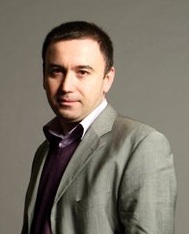Photo: Vasil Garnizov
Anastasia Balezdrova
The civil protests in Bulgaria against Oresharski’s government have continued for a month already. Over the recent weeks, GRReporter has talked to people from different areas of the public life who analyzed the events following the elections in May. After director Javor Gardev, political scientist Vladimir Shopov, professor and expert on security, defence and public order Nikolai Slatinski, writer Vladimir Levchev, today we offer you again a conversation with journalist Ivan Bedrov.
Just a day after the parliamentary elections in May, he had forecasted the present political crisis in Bulgaria, again in an interview for the website.
Mr. Bedrov, what is your assessment of the situation in Bulgaria?
 The situation is very unclear. There is a feeling that something is happening, but no one can define exactly what it is. I think that this will be a very long process. Everyone wants resignation and elections. It is clear that these elections will reproduce the old parties to some extent and that they will continue to behave in the same way. There will be protests after a few months again and the people will once again want to overthrow the government.
The situation is very unclear. There is a feeling that something is happening, but no one can define exactly what it is. I think that this will be a very long process. Everyone wants resignation and elections. It is clear that these elections will reproduce the old parties to some extent and that they will continue to behave in the same way. There will be protests after a few months again and the people will once again want to overthrow the government.
The moment is historically significant although this may be high-sounding. There is some change among the people. It starts from a more alert, active and informed minority which is in Sofia, on the yellow paving stones, but I think this is a "contagion" which cannot be stopped.
What is happening to the protests a month after their start?
What surprises me a month later is the fact that the energy is not waning, that thousands of people gather outside the Council of Ministers every evening and then hold a procession to the Parliament and Eagle’s Bridge, continuing to demand the resignation of the government.
The number of the people is actually much higher than what we see on TV because they are not the same. I know people who travel and, when they return, they take part in the protests again. Others can participate only one evening and the third group involves people who can take part in the protests for two evenings. This means that the number of the people who are actively involved in the protests is much higher than the number of the people we see every evening.
The situation is very unclear. There is a feeling that something is happening, but no one can define exactly what it is. I think that this will be a very long process. Everyone wants resignation and elections. It is clear that these elections will reproduce the old parties to some extent, and they will continue to behave in the same way. There will be protests after a few months again and the people will once again want to overthrow the government.
The moment is historically significant although this may be high-sounding. There is some change among the people. It starts from a more alert, active and informed minority which is in Sofia, on the yellow paving stones, but I think this is a "contagion" which cannot be stopped.
However, the fact that the state has got used to living that way is disturbing the protesters. The protest is now part of the everyday life of all - not only of the protesters, but of the others too. Thousands of people are demanding the resignation of the government which, currently, is not disturbed in any way whatsoever. It is continuing its activities, appointments, the “takeover” of various positions of power and the scandals. It is a disturbing fact that the big scandal, namely the split between the government and the citizens, this gap between them, is covering up a large number of small specific scandals which the government is continuing to produce. They remain somewhat hidden against the background of everything else.
The government is stable in the Parliament and the people outside want its resignation. There had been some criticism of leader Sergey Stanishev in the ranks of the Bulgarian Socialist Party (BSP) but it had faded. Do you think that the socialists themselves agree with each other in terms of their leader and that we can expect any changes to be triggered by them?
I personally do not hope that a change will be triggered by them. However, there are different voices in the BSP. Even former President Georgi Parvanov appeared on a television broadcast yesterday and directly criticised current party leader Sergey Stanishev again. But I really do not expect anything to happen inside the party because the only motivation of the people who have a majority in the National Assembly is to hold power and this is apparent.
The fierceness with which they started to govern, the control over the State Agency for National Security (SANS) which they had obtained literally for hours through the express change in the law and the express election of its head, albeit withdrawn, is continuing in other areas. There are such appointments every day and "scandalous" and "controversial" are very mild words for them. People who are being appointed to certain positions have scandalous biography and this is continuing.
I think that their only motivation is to remain in power since they are very aware of the fact that the people outside are not a threat to them as long as they are cheerful and original.